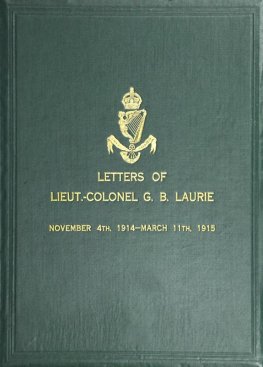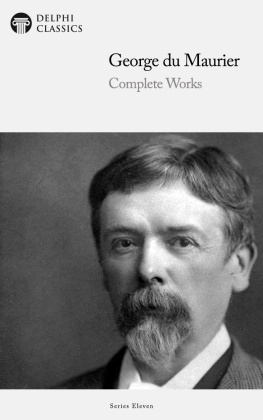TRANSCRIBERS' NOTES
Most pages of the book include at the bottom a number of questions for the student to consider. These have been retained in this version in grey boxes with dashed outlines.
Some corrections to typographical errors have been made. These are recorded at the end of the text.
G. E. WARING, Jr .
Consulting Agriculturist.
ACCURATE ANALYSES OF SOILS, MANURES, AND
CROPS PROCURED. FARMS VISITED,
TREATMENT RECOMMENDED,
ETC.
Letters of advice on analyses will be written for those who require them, for $25 each.
Letters on other branches of the subject, inclosing a suitable fee, will receive prompt attention.
Office, 143 Fulton-street, New York, (up stairs.
Post-Office Address, Rye, N. Y.
DR. CHARLES ENDERLIN,
ANALYTICAL AND CONSULTING
Chemist,
84 WALKER-STREET,
NEW YORK.
Analysis of Minerals, Soils , Organic Analysis, etc.
D. APPLETON & COMPANY
HAVE IN COURSE OF PREPARATION,
THE
EARTHWORKER;
OR,
Book of Husbandry.
By G. E. WARING, Jr .
Author of the "Elements of Agriculture."
This book is intended as a sequel to the Elements of Agriculture, being a larger and more complete work, containing fuller directions for the treatment of the different kinds of soils, for the preparation of manures, and especially for the drainage of lands, whether level, rolling, hilly, or springy. Particular attention will be paid to the use of analysis. The feeding of different animals, and the cultivation of the various crops, will be described with care.
The size of the work will be about 400 pp. 8vo., and it will probably be published January 1st, 1856. Price $1. Orders sent to the publishers, or to the author, at Rye, N. Y., will be supplied in the order in which they are received.
ELEMENTS
OF
AGRICULTURE
Extract from a letter to the author from Prof. Mapes, editor of the Working Farmer:
* * * "After a perusal of your manuscript, I feel authorized in assuring you that, for the use of young farmers, and schools, your book is superior to any other elementary work extant. JAMES J. MAPES."
Letter from the Editor of the N. Y. Tribune:
My Friend Waring ,
If all who need the information given in your Elements of Agriculture will confess their ignorance as frankly as I do, and seek to dispel it as promptly and heartily, you will have done a vast amount of good by writing it. * * * * * I have found in every chapter important truths, which I, as a would-be-farmer, needed to know, yet which I did not know, or had but a confused and glimmering consciousness of, before I read your lucid and straightforward exposition of the bases of Agriculture as a science. I would not have my son grow up as ignorant of these truths as I did for many times the price of your book; and, I believe, a copy of that book in every family in the Union, would speedily add at least ten per cent. per acre to the aggregate product of our soil, beside doing much to stem and reverse the current which now sets so strongly away from the plow and the scythe toward the counter and the office. Trusting that your labors will be widely regarded and appreciated,
I remain yours truly,
HORACE GREELEY.
New York, June 23, 1854.
THE
ELEMENTS OF AGRICULTURE:
A Book for Young Farmers,
WITH QUESTIONS PREPARED FOR THE USE OF
SCHOOLS.
BY
GEO. E. WARING, Jr. ,
CONSULTING AGRICULTURIST.
The effort to extend the dominion of man over nature is the most healthy and most noble of all ambitions. Bacon.
NEW YORK:
D. APPLETON AND COMPANY,
346 & 348 BROADWAY.
M DCCC LIV.
Entered according to Act of Congress, in the year 1854, by
GEO. E. WARING, Jr. ,
in the Clerk's Office of the District Court of the United States for the Southern District of New York.
TO
MY FRIEND AND TUTOR,
PROF. JAMES J. MAPES,
THE PIONEER OF AGRICULTURAL SCIENCE IN AMERICA,
This Book
IS RESPECTFULLY DEDICATED
BY HIS PUPIL,
THE AUTHOR.
TO THE STUDENT.
This book is presented to you, not as a work of science, nor as a dry, chemical treatise, but as a plain statement of the more simple operations by which nature produces many results, so common to our observation, that we are thoughtless of their origin. On these results depend the existence of man and the lower animals. No man should be ignorant of their production.
In the early prosecution of the study, you will find, perhaps, nothing to relieve its tediousness; but, when the foundation of agricultural knowledge is laid in your mind so thoroughly that you know the character and use of every stone, then may your thoughts build on it fabrics of such varied construction, and so varied in their uses, that there will be opened to you a new world, even more wonderful and more beautiful than the outward world, which exhibits itself to the senses. Thus may you live two lives, each assisting in the enjoyment of the other.
But you may ask the practical use of this. "The world is made up of little things," saith the proverb. So with the productive arts. The steam engine consists of many parts, each part being itself composed of atoms too minute to be detected by our observation. The earth itself, in all its solidity and life, consists entirely of atoms too small to be perceived by the naked eye, each visible particle being an aggregation of thousands of constituent elements. The crop of wheat, which the farmer raises by his labor, and sells for money, is produced by a combination of particles equally small. They are not mysteriously combined, nor irregularly, but each atom is taken from its place of deposit, and carried to its required location in the living plant, by laws as certain as those which regulate the motion of the engine, or the revolutions of the earth.
It is the business of the practical farmer to put together these materials, with the assistance of nature. He may learn her ways, assist her action, and succeed; or he may remain ignorant of her operations, often counteract her beneficial influences, and often fail.
A knowledge of the inner world of material things about us will produce pleasure to the thoughtful, and profit to the practical.
CONTENTS.
SECTION FIRST.
THE PLANT.
| PAGE. |
| Chapter | I. | Introduction, |
| " | II. | Atmosphere, |
| " | III. | Hydrogen, Oxygen, and Nitrogen, |
| " | IV. | Inorganic Matter, |
| " | V. | Growth, |
| " | VI. | Proximate division of Plants, |
| " | VII. | Location of the Proximates, and variations in the Ashes of Plants, |
| " | VIII. | Recapitulation, |
SECTION SECOND.
THE SOIL.
| Chapter | I. | Formation and Character of the Soil, |












